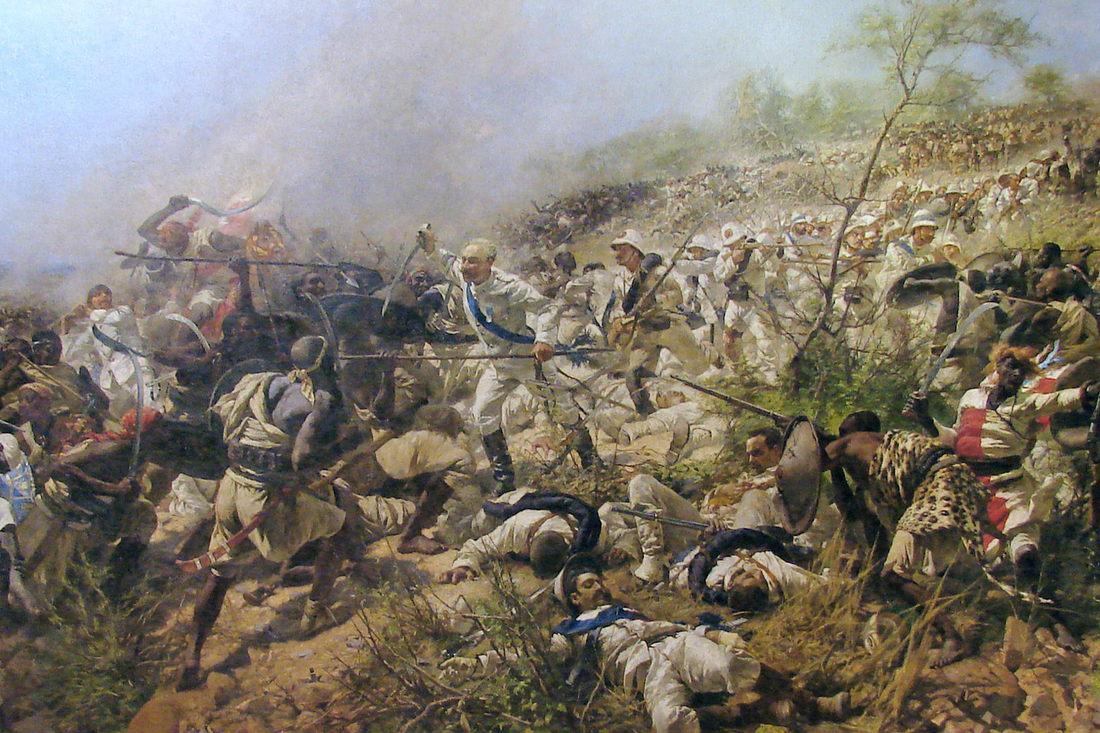As I’m sure many of you history nerds are already aware, Ethiopia was the only country in Africa not to be conquered by a European power. This was partly due to the complacency of their enemy, but more credit should be given to the superior military tactics of the Ethiopian nation (and a bit of help from Russia).

ITALY IN AFRICA
In 1869, not long after Italy had been united into one kingdom, the Italians felt they were falling behind their British, French and Portuguese continental counterparts in the Scramble for Africa. Italy purchased a small port town on Africa’s north coast overlooking the Red sea, from the local Eritreans. The town was called Assab and it expanded outwards extending its territory with mineral rich mines and farmland.
By 1887, the land of the new Italian colony was encroaching on the bordering Ethiopian empire, who now found themselves cut off from the sea. Skirmishes broke out between the Italians and the local Ethiopian warlords. Italy was determined to conquer the African nation, and they saw their opportunity when the Ethiopian emperor died, and a new leader stepped up to lead the nation – King Menelik II. The Italians backed him to become Emperor because they thought he would cooperate with Italy and serve their best interests. They were dead wrong.

An Italian map of Abyssinia from 1886
THE TREATY OF WUCHALE

A page from the Amharic translation of the treaty
However, the two copies of the treaty were worded differently. The version in Amharic it said the Emperor could choose to deal with foreign powers via Italy, but in the Italian version it said that Ethiopia would become an Italian protectorate.
Given the dishonest wording of the treaty, the Ethiopians knew it would only be a matter of time before the Italians would accuse them of breaking the treaty and declare war. But the Ethiopians were the ones who struck first in 1894, when a local King of a province that bordered Italy’s territory rose up with a group of insurgents and attacked an Italian fort in the Eritrean region. In response, the Italians sent troops into Ethiopian territory which was led by General Oreste Baratieri.
THE CONFLICT
It was this arrogance that led to the Italians ordering that Baratieri march directly south to capture Ethiopia’s capital, Addis Ababa. Menelik used his superior army to great use and crushed the Italians at the Battle of Amba Alagi. It took months to push the Italians back to the mountains near Eritrea, but when they did King Menelik finally faced off in battle against his European counterpart; General Baratieri at the Battle of Agwa in 1896.

The combination of rifle fired infantry support and strong cavalry charges broke the Italians to pieces. They could only inflict relatively minor casualties of their more numerous foes and were entirely wiped out with several hours. This defeat caused Baratieri to flee back into Eritrea, but Menelik did not pursue him choosing instead the preserve his strength – he had defeated the coloniser and secured his homeland.
THE AFTERMATH


